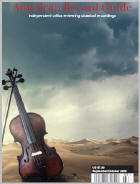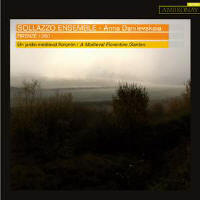Texte paru dans: / Appeared in: |
|
|
Outil de traduction ~ (Très approximatif) |
|
|
Reviewer: Catherine
Moore This program celebrates the musical virtuosity and clever courtly artfulness of medieval Florence. Since the poetic texts are as intricate and well-fashioned as the music, I’m glad that texts and translations are included. Part of the pleasure in hearing this music is to uncover all the ways that composers and interpreters bring language to life. One piece is political. Paolo Da Firenze’s 'Godi Firenze’ anticipates victory over Pisa, with a light scampering of voices accompanied by organetto and fiddle followed by intricate melodies over long held notes. Two pieces depict the hunt in different ways: the hunters in Giovanni Da Firenze’s 'Per Larghi Prati, Caccia’ are resting in a cave and the music evokes a suspended state of half-wakefulness; by contrast, Lorenzo Da Frienze’s 'A Poste Messe’ has the hunt literally in full cry, its texts of barking dogs, shouting hunters, and hearty horn-calls are set to music in a 3-soprano canon. Two pieces are laments and three settings of 'Benedicamus Domino’ show how composers and musicians interpret a sacred text in different ways. The Sollazzo Ensemble is made up of four singers (SSCtT), four instrumentalists, and director Anna Danilevskaia who also plays fiddle. They breathe as one and are completely attuned to each other, with flexible command of imaginative and agile expression. Notes, texts, translations. I also liked this ensemble’s debut recording, Parle Qui Veut (Linn 529, M/A 2018: 221).
| |
|
|
|
|
Cliquez l'un ou l'autre
bouton pour découvrir bien d'autres critiques de CD |
|




